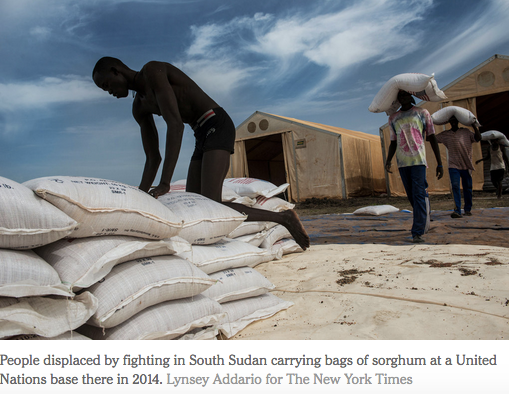Since the end of World War II, American foreign policy has understood the role of economic development in the prevention of conflict around the world — providing a subtle yet powerful contribution to the United States’ own national security.
Poverty reduces the opportunity cost of violence. Scarcity intensifies competition over resources. Inequality pits have-nots against haves. And poor states are weaker — less able to contain conflict once it breaks out. President John F. Kennedy summed up the argument more than half a century ago: “A more prosperous world would also be a more secure world.”
President Trump isn’t buying.
In a speech in Warsaw last week, he offered a graphic illustration of the United States as a nation at war, seeking allies for an all-out conflict “in defense of civilization itself.” Promoting development is clearly not part of his tool kit. He is focused on guns.
This is bad news from the perspective of poverty reduction and economic development around the globe. The shift in policy also opens another question: To what extent could it destabilize the world and come back to bite the United States?




